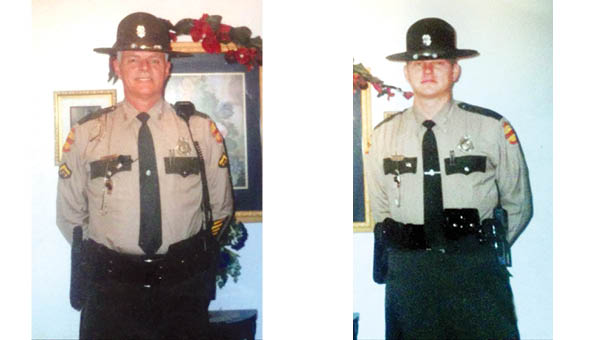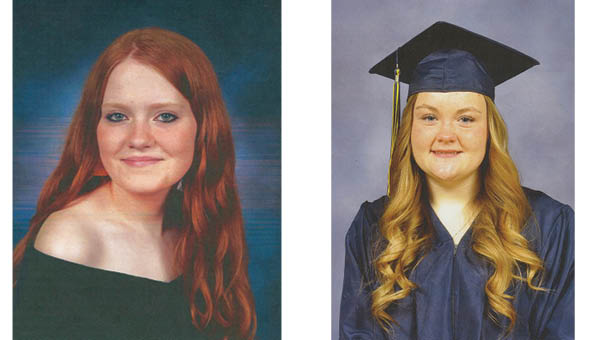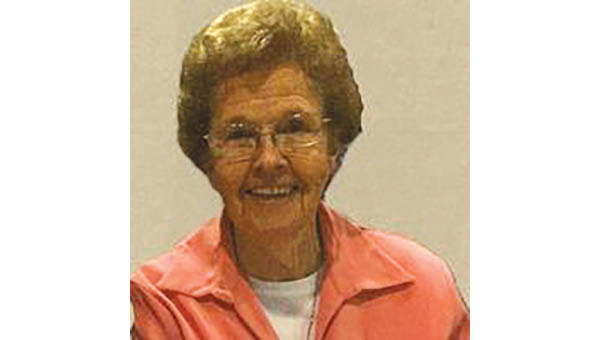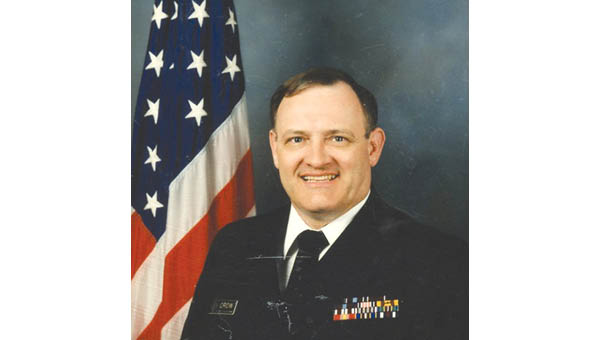County Election Commission discusses write-in campaigns
Published 3:46 pm Friday, June 15, 2018
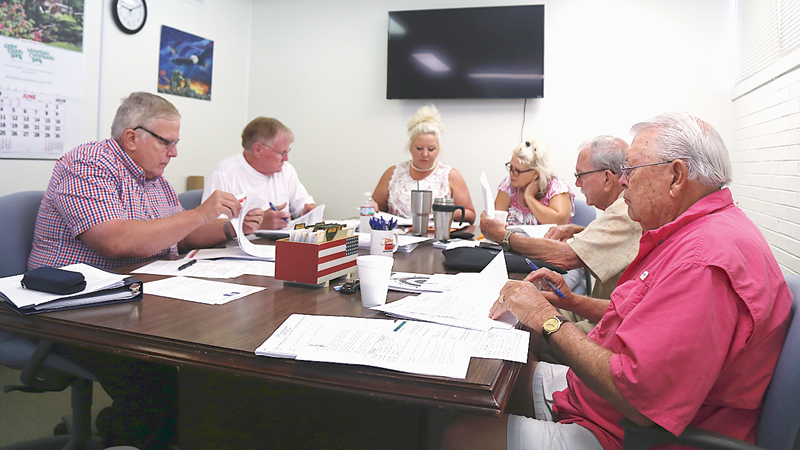
- Star Photo/Abby Morris-Frye Members of the Carter County Election Commission review state guidelines for write-in campaigns during their meeting Friday morning.
Much of the focus of Friday’s meeting of the Carter County Election Commission centered around write-in candidates and the election rules surrounding that type of candidacy.
A total of eight candidates will be running write-in campaigns in the upcoming August 2 election, which will serve as the County General Election as well as the Primary Election for state and federal offices. Of those eight, six are seeking county offices while the remaining two are seeking nomination to federal positions.
Trending
The Election Commission voted unanimously to certify those write-in candidates who had completed the state-required certification form.
Write-in candidates for the County General Election on August 2 include Ronald Reed, Samuel Myers, Jonathan Potter, Scotty Hall, Timothy Hopson, and Leon Humphrey.
Reed and Myers certified as write-in candidates for the office of constable in the county’s 1st District, which includes the Hunter, Midway, and Unaka precincts.
Hall certified as a write-in candidate for the office of constable in the county’s 3rd District, which includes the Central, Keenburg, Range, and Watauga precincts.
Hopson certified as a write-in candidate for the office of constable in the county’s 5th District, which is the Happy Valley precinct.
Potter certified as a write-in candidate for the office of constable in the county’s 6th District, which includes the Elk Mills, Hampton, Little Milligan, and Valley Forge precincts.
Trending
Leon Humphrey certified as a write-in candidate for the office of Carter County Mayor.
In addition to the local write-in candidates, two individuals have filed Certificates of Write-In Candidacy with the Tennessee Division of Elections seeking Republican party nominations in the August 2 federal Primary Election.
Tommy N. Hay, of Monterey, and Tom Emerson Jr., of Brighton, have both been certified by the state as write-in candidates for the Republican Nomination for the United States Senate.
During Friday’s Election Commission meeting, the group approved adopting the state guidelines for countable write-in votes.
For example, a vote listing a candidate’s last name alone will be counted, but a write-in vote using only the candidate’s first name will not be counted, Harris said. So, if John Doe is running a write-in campaign for an office, a vote for “Doe” would count, but a vote for “John” would not.
Election officials also provide some leeway for voters in the spelling of write-in candidate names.
“It is supposed to be counted by the intention of the voter,” Harris said. “You would not believe some of the ways people come up with to spell these names.”
For example, if John Smith is running a write-in campaign, votes for Jon Smith, John Smyth, Smythe, and J. Smithy would all count.
The Election Commission also discussed the rules which poll workers must follow when a voter has a question about write-in candidates.
Harris said poll workers can explain to a voter how to use the machine to cast a write-in vote but they cannot provide any spellings of names for write-in candidates or input a name for a voter on the machine.
If a voter asks if there are any write-in candidates, Harris said poll workers are only allowed to say “the ballot speaks for itself” and cannot tell a voter if a particular race has a write-in candidate or the name of anyone running a write-in campaign.
“I think it’s up to the candidate to educate the people on how to spell their name,” Election Commission member Ramon Sanchez-Vinas said.
With the large number of write-in candidates, particularly with one of those candidates seeking the county’s top elected position, Harris anticipates Election Day will be an extremely long day, and night, for her staff and election workers.
“We can’t leave that night until all the write-ins are counted,” Harris said. “Even if a candidate on the ballot gets 1,000 votes and there are only 500 write-ins and it’s clear the write-in candidate didn’t win we still have to stay that night until they are all counted.”
“With Chris Mathes we were there until 4 o’clock in the morning,” she added, referring to the 2014 County General Election when Mathes ran an unsuccessful write-in campaign after losing in the Primary to Dexter Lunceford by a margin of 78 votes.
In that election, Lunceford captured 6,994 votes while only 5,416 write-ins were cast. Despite the fact that Lunceford was the clear victor, Harris said her staff and the Canvasing Board had to stay until 4 a.m. the following morning counting the write-in votes rather than waiting until the following day to begin the canvasing process.
Write-in bids in the General Election after a candidate loses a Primary Election are not uncommon, according to Harris but they are rarely successful. According to Harris, the last county election to see a write-in candidate defeat a candidate appearing on the ballot was in 1990 when Paul Peters defeated incumbent Sheriff Bill Crumley by a margin of 173 votes.
At that time, votes were still cast on paper ballots. “People were at the polls for 48 hours straight because the votes had to be counted at the polling places too,” Harris said.
The extra time and election workers needed for a Canvasing Board to count write-in votes adds “a few thousand dollars” to the cost of the election, according to Harris. During the Mathes write-in bid, Harris said the Election Commission had to pay out an additional $2,200 in compensation to the Canvasing Board. That number does not include the extra cost for printing, meals provided to the Board for working throughout the night, or the cost of overtime for her staff.


